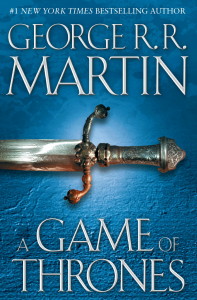 I read a quote this week from David Mamet (left), the noted playwright and essayist:
I read a quote this week from David Mamet (left), the noted playwright and essayist:
When you sit down to write, tell the truth from one moment to the next and see where it takes you.
Over the years I’ve heard this same sentiment expressed in various forms. Novelist Wendell Berry once wrote, “The first obligation of a writer is to tell the truth–or to come as near to telling it as is humanly possible.”
Sounds noble and good, but something about this bromide has always bothered me. Maybe because it is, as judges sometimes say about statutes, “void for vagueness.”
So I decided to devote this space to figuring out what the heck it’s supposed to mean, and whether it’s at all helpful to writers.
My first question is, what’s the definition of truth? What do these folks mean by it? Do they mean objective truth (that which is true no matter what anyone thinks about it)? Or subjective truth (that which comes out of the deepest part of ourselves)?
And if they mean the latter, is that really truth? I’m not down with the whole “that may be true for you, but it’s not true for me” vibe. In that case, Mein Kampf would be a classic of world literature.
No, I think what Mamet and Berry other writers mean by “tell the truth” is that the writer must, first and foremost, be honest with himself. Not be afraid to go wherever his inner heart and life are leading. Tell that story, from the gut.
I partially agree. Exploring deep––and sometimes dark––corners to render honest fiction is one aspect of this game. But there’s another, equally important part, and it’s this: you, the writer, are in charge of what is ultimately shown in your stories.
Which means you don’t have to spew everything onto the page in the name of some vague notion of truth. You’re not a slave to your material; you’re the shaper and molder of it.
Now, I’ll grant that a novel can seem less truthful and honest if certain punches are pulled. Readers sense that. But as the author you get to decide how you want to land those punches. You should land them artfully, with purpose. You think through the strategy for your novel. The truth-at-any-cost school doesn’t always produce better writing. In fact, it may make it worse.
Case in point, the obligatory sex scene (in other genres than erotica, where they are expected). There’s no rule that says graphic descriptions of body parts, and profligate use of synonyms for pulsate, make such a rendering necessary. Personally, I prefer the closed door, leaving the rest to the imagination. That’s the way they used to do it, and it’s actually more sensual. (Read the carriage ride scene in Madame Bovary sometime.)
Which brings me to Game of Thrones.
 At the outset, let me make clear that I’ve not read the books nor gotten hooked on the series. I know both have rabid followings. So what I’m about to discuss is simply a reaction to something I recently happened across.
At the outset, let me make clear that I’ve not read the books nor gotten hooked on the series. I know both have rabid followings. So what I’m about to discuss is simply a reaction to something I recently happened across.
It seems the author, George R. R. Martin, has come under considerable criticism for gratuitous depictions of rape. One blogger puts it bluntly: “Martin is content to use rape to develop male characters, to titillate the reader, and to paint rape victims seeking justice as villains. No other raped women have a voice. This calls into question his empathy as a human being and his imagination as a writer.”
In answer to this, Martin says:
I wanted my books to be strongly grounded in history and to show what medieval society was like, and I was also reacting to a lot of fantasy fiction. Most stories depict what I call the “Disneyland Middle Ages”––there are princes and princesses and knights in shining armor, but they didn’t want to show what those societies meant and how they functioned … [If] you don’t portray (sexual violence), then there’s something fundamentally dishonest about that. Rape, unfortunately, is still a part of war today. It’s not a strong testament to the human race, but I don’t think we should pretend it doesn’t exist.
A few points. George R. R. Martin is free to write what he wants to write. And I’ve heard his writing and world building are amazing. So what I’m about to say isn’t coming from a political or social agenda. It’s as a fellow writer who would simply ask Mr. Martin, “Is all this really necessary? How much of this material is carrying you, rather than the other way around? I get that you want to soak us in medieval darkness, but what about the equal value of artistic restraint? That’s not denying that something exists, but it’s also not letting it run rampant.”
Maybe for Martin that’s not a consideration or desire. And, again, he as the right to do it his way. But “telling the truth” isn’t the only fiction strategy.
I think the best writers make a case. Great fiction depicts a clash of values in which the writer will, ultimately, take a side. Yes, the side that prevails has to do so in a way that does not feel manipulative. That’s where craft comes in. The author’s job is to make the case through the characters behaving in surprising, clever, and ultimately justifiable ways.
That’s actually harder to do than just letting it all hang out.
I think this is what the novelist and writing teacher John Gardner was getting at when he said this to The Paris Review:
As I tried to make plain in On Moral Fiction, I think that the difference right now between good art and bad art is that the good artists are the people who are, in one way or another, creating, out of deep and honest concern, a vision of life … that is worth pursuing. And the bad artists, of whom there are many, are whining or moaning or staring, because it’s fashionable, into the dark abyss.
So by all means, tap into your heart and soul when you write. But include your head, too.
As I like to counsel new writers: Write like you’re in love. Edit like you’re in charge.
So what about you? Do you think “just tell the truth”––all by itself––is helpful writing advice? Is it possible to make an argument for artistic self-restraint anymore?
